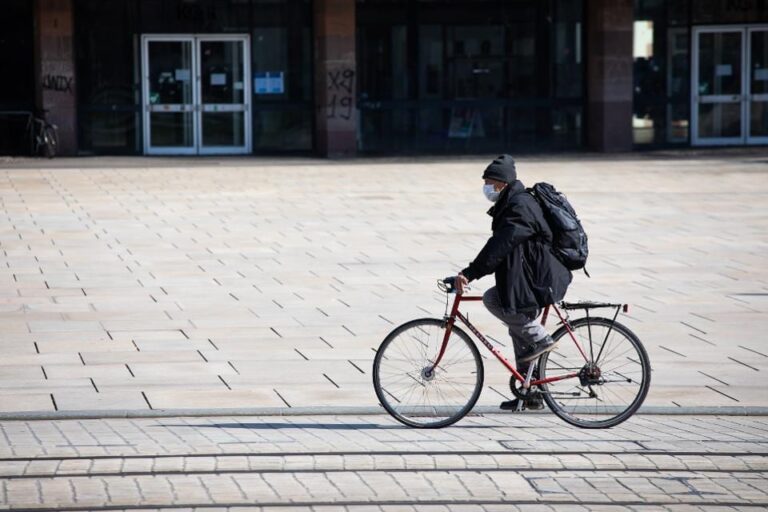As self-isolation and social distancing become the new norms, Agathe Marie of the European Cyclists Federation ponders whether there’s still a place for cycling in the world…
COVID19 is seriously impacting society and people’s daily lives. Respecting social distancing and staying home as much as possible is – quite literally – vital. But among all these measures and restrictions, is there still a place for the bicycle? Could it even contribute to the implementation of these measures? Could it create opportunities and offers solutions?
From nationwide curfews to school shutdowns, European authorities are creating a patchwork of measures to stop or slow down the spread of coronavirus. Whatever the stage of measure, it translates in all cases into a recommendation to minimise all types of trips, to respect social distancing and avoid all unnecessary contact.
These measures impact our entire way of life and alternatives solutions are being found to allow each of us to tend to our essential needs, to go to work when necessary, and to still perform some physical activity, while taking in fresh air.
Cycle for your own sake: From one country to another, the definition of an authorised trip varies. For some, it’s going to the supermarket or pharmacy. For others, it’s going to work or partaking in physical exercise. In any cases, the question of transportation appears and is an essential one. In the UK, a group of 16 leading academics has called for the British government, in an open letter, to “enable safe walking and cycling during the COVID-19 pandemic”.

Cycle to respect social distancing : While public transport plays an essential part in people’s everyday lives, everyone who can, should get out on their bicycles for short trips and for commuting. Cycling allows people to respect social distancing by avoiding overcrowded public transport, thus lowering the risk of getting the virus, and/or of spreading it. This means, avoiding crowded bike lanes and cycling alone or with someone living under the same roof, to respect social distancing. This also means cycling safely with extra caution so as to not risk having or causing an accident while hospitals are overloaded.
Cycle for your physical health: It is well known that physical activity greatly contributes to maintaining a strong immune system. Jumping on a bike, getting your heart-rate up, and breathing deeply to clear our throat and lungs of bacteria wards off chronic illness and boosts white blood cells numbers.
Cycle for your mental health : The current situation can be a source of anxiety and depression for many. Cycling contributes to improving mental health and reducing stress. Multiple studies show that those who commute by bicycle are happier and less prone to depression than those who use any other form of transport.
So let’s cycle against COVID-19, not towards it. Take care of yourself and your bicycle by respecting strict hygiene rules, both before and after going on a ride. Speaking of which, what about bike sharing? Shared bicycles will always be a great alternative and option for people without a bicycle of their own. However, in these uncertain times, remember to wash or sanitise your hands and, while using a shared bicycle, don’t touch your face. Check your itinerary beforehand to minimise the number of times you touch other items.
More than ever, we are being asked to reduce our trips. So when we do, we need to be strategic. How do you keep a trip short and maintain social distancing while also providing to your food, medical, physical and mental health needs all at the same time? Grab your bike and be safe!
 Want to learn more about issues, concepts and technologies that are changing the way in which people and goods move around urban environments safely, cleanly and efficiently? CiTTi Exhibition 2020 takes place on the 3rd and 4th of November at Coventry’s Ricoh Arena. Register your interest to attend at www.cittiexhibition.co.uk.
Want to learn more about issues, concepts and technologies that are changing the way in which people and goods move around urban environments safely, cleanly and efficiently? CiTTi Exhibition 2020 takes place on the 3rd and 4th of November at Coventry’s Ricoh Arena. Register your interest to attend at www.cittiexhibition.co.uk.





